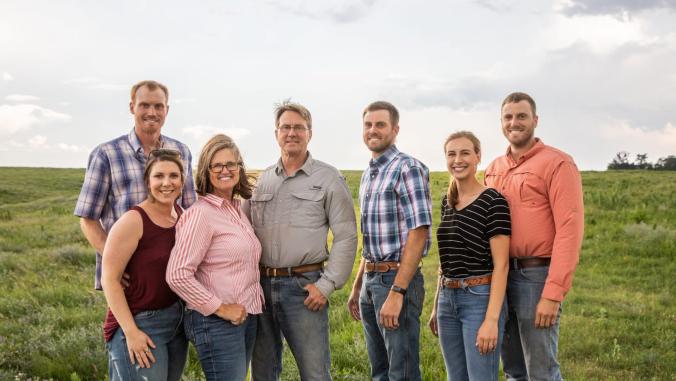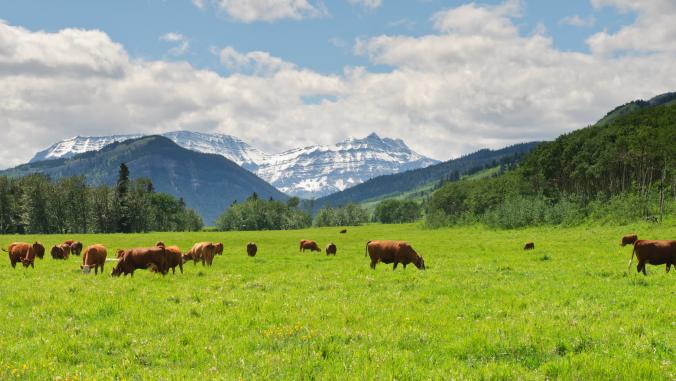Hooray for Hollywood
Can Tinseltown movies and TV shows help sell climate change -- and the products that can help reduce it? By Joel Makower

I still can recall my first cynical thought a year ago when I heard that this year’s LOHAS conference -- promoting “lifestyles of health and sustainability” -- would move from suburban Denver to Los Angeles.
“Great,” I remember thinking. “That’s exactly what the market for environmentally responsible products needs: tighter alignment with the liberal Hollywood elite.”
And so I showed up at the event -- held last month at a waterfront Ritz-Carlton a stone’s throw from Tinseltown -- with more than a little skepticism about whether and how the presence of movie stars and industry moguls might help grow markets for organic foods, green buildings, natural beauty products, energy efficiency, holistic health regimens, and the many other goods and services that lie beneath the sprawling LOHAS umbrella.
After all, many of these items are viewed as pricey, nonessential purchases accessible only to the relative few who can afford them. So, what on earth could a tanned, coiffed, and unreasonably attractive army of producers and performers do to make green products acceptable, never mind affordable, to the masses?
Over the course of three days at the Ritz, the answer became apparent: Pretty much anything their liberal hearts desire.
Just ask Ford Motor Co. The auto giant used the LOHAS event as the West Coast launch of its new Escape hybrid sport-utility vehicle. It was the latest in a series of Hollywood-centric marketing efforts that began at February’s Academy Awards, which featured Diane Keaton rolling up to the red carpet in one of Ford’s new SUVs. It continued in March, when an Escape played a supporting role in an “American Idol” TV episode. It extended into April, when Kevin Bacon joined a bevy of celebs for a P.R. stunt that involved driving all 500 miles of Manhattan pavement on a single tank of gas.
And it all seems to have paid off in May, when Ford announced that while it planned to sell just 20,000 Escapes this year, it already had 30,000 orders -- months before the first vehicles hit the streets in August. (It doesn’t hurt that U.S. gasoline prices are at record highs.)
The Escape is one example of Hollywood’s role in influencing fashions and trends, and much of the LOHAS conference focused on this influence -- not just for environmental products, but for environmentalism itself. More than a few presenters showed demo reels of commercials and scenes from TV shows and movies to illustrate how the entertainment industry can be a powerful partner in delivering messages about recycling, global warming, pesticides, the plight of the oceans, and other hot eco-topics.
And, for a fee, could integrate “product placements” of green goods into scripts, plots, and set decorations.
The role of Hollywood as environmental change agent is now being put to the test with the Memorial Day weekend opening of The Day After Tomorrow, a $125 million, special-effects-laden sci-fi flick examining what the world would look like if global warming resulted in worldwide catastrophe and disaster.
The answer, according to writer-director Roland Emmerich, who also directed the 1996 blockbuster Independence Day: hurricanes, tornadoes, earthquakes, tidal waves, floods, and the beginning of the next Ice Age. The film has become a catalyst for a larger educational campaign about global warming, involving organizations as wide-ranging as Greenpeace, Scripps Institution of Oceanography, and NASA.
Of course, to make the disaster seem “real,” Emmerich sought extensive creative license, accelerating climate change’s advance to fit within the movie’s 124-minute run time. In a matter of a few cinematic days, a super storm envelops the globe, sending tornadoes skittering through L.A., pounding Tokyo with hail the size of grapefruit, and burying New Delhi in snow.
Will all this chaos help “sell” global warming -- not to mention Ford Escapes? The reviews, and the sales figures, aren’t yet in. But I left LOHAS and L.A. with a newfound appreciation for the power of storytelling to sell cars, cosmetics, and causes. And maybe, along the way, to foment a few conversations about the fate of the earth that might not have happened had Hollywood not intervened.
-------------
Joel Makower is Founder of GreenBiz.com. A version of this column originally appeared in The Green Business Letter, of which he is editor.





